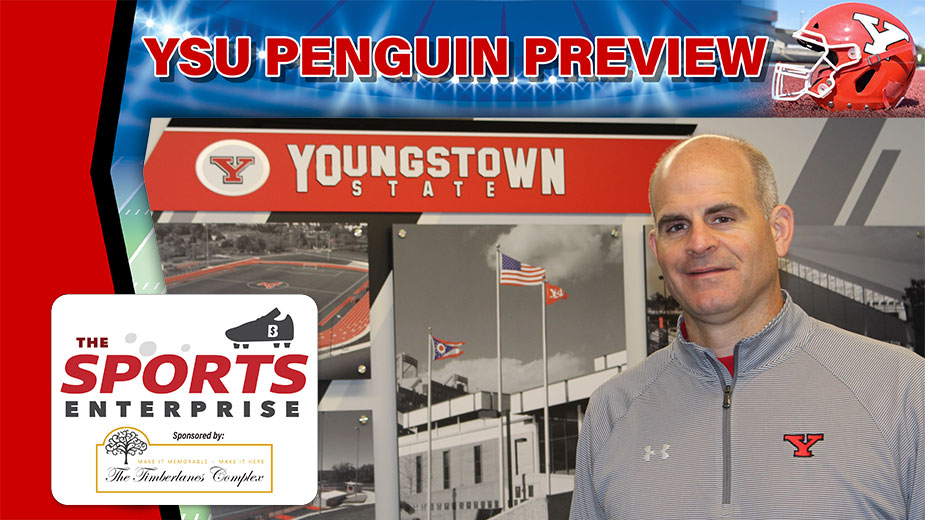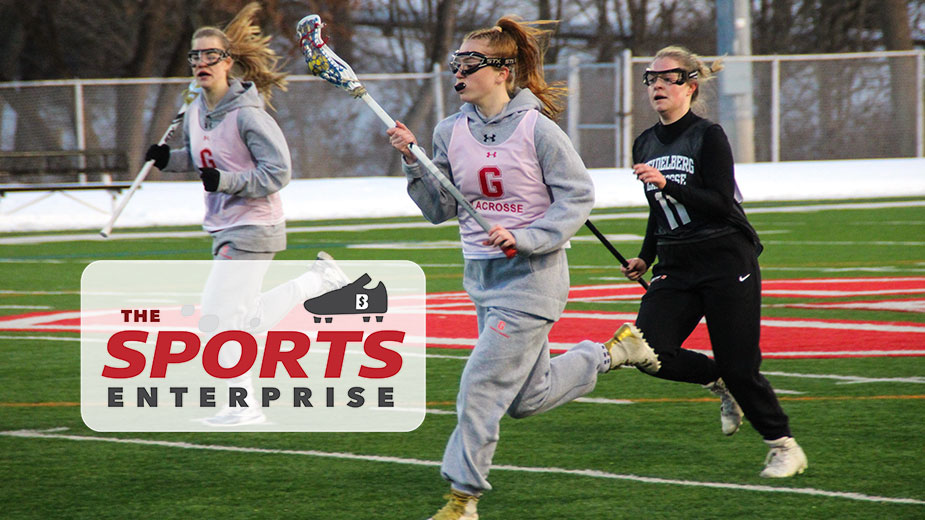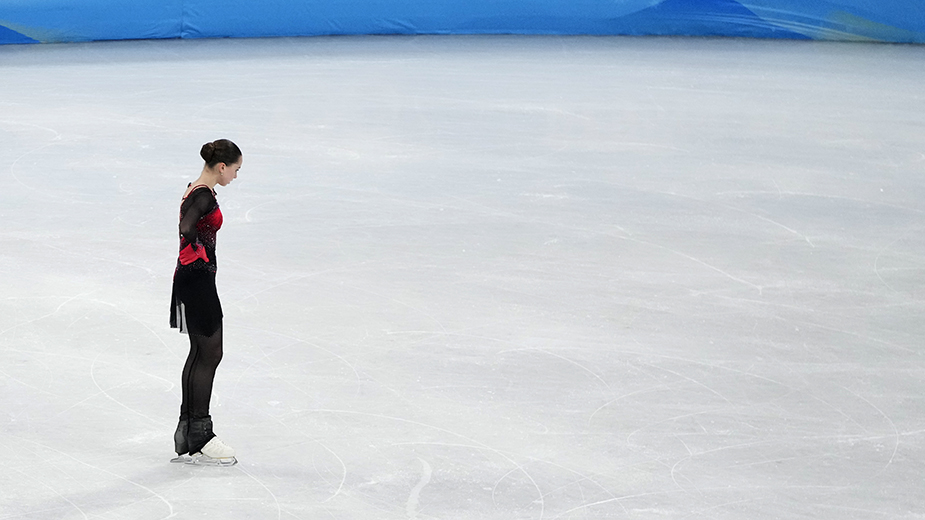YSU Athletics Look to Bounce Back in 2021-22 Fiscal Year
YOUNGSTOWN, Ohio — Mask wearing, COVID-19 testing, cancellations and other detours impacted the Youngstown State University athletic program during the 2020-21 fiscal year ending June 30.
YSU athletics normally has a budget of $16 to 17 million, but slipped to $10 to 11 million, says the school’s Executive Director of Athletics Ron Strollo. He adds these are estimates since the final figures have not been tabulated for the 2020-21 campaign.
The athletic department budget is split into three parts – scholarships, salaries and operations, he says.
“By the time you balance out the revenue and expenses, we came pretty close to breaking even through the fiscal year,” Strollo says.
Season tickets for football and basketball were nonexistent. Limited football fans were admitted in the spring, while sparse numbers attended non-league basketball games. The Horizon League banned fans from conference basketball contests.
Recruiting expenses, including prospective student-athletes coming to campus and coaches traveling across the country, were put on hold for 15 months. However, Strollo sees prospective YSU students still coming to campus because they are “going to want to see your campus before they commit the next four or five years of their lives.”
Travelling expenses may decrease as more coaches and student-athletes continue to use virtual measures in recruiting, as well as coaches and administrators attending fewer conferences.
“We’ve been able to save, not only in the travel but just your time of going through airports and spending nights in hotel rooms,” he says. “It’s better to be here around the 530 student-athletes that we have.”
Athletic schedules were modified to avoid the constant spread of the coronavirus, keeping teams closer to camps and avoiding as much travel as possible. Also, summer school expenses in 2020 were nonexistent as students did not come back to campus until closer to the fall semester.
Additionally, 22 positions within the department were cut during the 2020-21 fiscal year, Strollo notes, but 75% of them came back for this cycle.
Another challenge was adding women’s lacrosse and men’s swimming and diving during the midst of the pandemic – bolstering the student-athletes from 400 to 530.
An athletic trainer and academic adviser are going to be added to help the school’s increase of student-athletes, hirings previously put on hold.
“The staffing levels have been put back to their original spots,” Strollo says.
The NCAA distributes revenue from the men’s basketball Final Four, which is normally $1.1 million for YSU. It was close to $300,000 last fiscal year since the 2020 tournament was canceled.
Guaranteed monies from playing larger schools brings in revenue as well. Michigan State University is paying YSU $750,000 for playing its football team on Sept. 11, but the Penguins lost out on $300,000 from the University of Akron from a game canceled in the fall of 2020.
This year in basketball, the YSU men have $60,000 coming from a Nov. 10 game at Penn State, while the women will make $15,000 to $20,000 at the Nittany Lions on Dec. 12.
The Penguins’ football team accounts for $4-5 million of the athletic budget, but programs like this and men’s and women’s basketball helps fund the other sports on campus. Other YSU teams sell 50/50 raffle tickets, merchandise in the football tailgate lot, programs, concessions and other things to fundraise for different trips or other functions at those games.
Meanwhile, Associate Athletics Director Rick Love says during an earlier interview corporate sponsorship is up this year, close to the 2019 levels where it was one of the best in the 20-plus decades he has been at YSU.
During the 2020-21 year, Oakland University and YSU split the McCafferty Trophy, which goes to the Horizon League school with the best overall programs from its championship sports. Love says the investment in the athletic facilities due to corporate sponsorship went a long way to support the student-athletes and coaches.
“I think winning the McCafferty is kind of proof in the pudding that hopefully what we’re doing is we’re going in the right direction,” he says.
Pandemic problems and solutions
Currently, there is an indoor mask mandate on campus. Strollo says those watching volleyball games are asked to wear face coverings. But as of Aug. 20, there are no requirements for outdoor events. He adds there are no attendance limits or requirements for fans to show they are fully vaccinated or have a negative COVID-19 test.
As with anything during the course of this pandemic, things can change quickly.
“We are obviously going to lean on the local health department and our campus experts,” Strollo says.
The athletic department spent between $300,000 and $500,000 on masks, tests, heart monitoring, signage, plastic barriers and other coronavirus-related expenses last fiscal year – all covered through federal funding.
This year, student-athletes do not have to wear face coverings if they are competing, practicing or doing any physical activity indoors, but have to wear a mask after those functions. The volleyball team had to wear masks playing games last spring, but as of now do not have to follow that mandate this fall.
“The Horizon League is working on that right now,” Strollo says. “I don’t think we’ve made a decision but there’s no NCAA requirement or campus requirement for them when they’re doing physical activities inside.”
Coming up in 2021
Three racquetball courts inside Stambaugh Stadium are going to be transformed into a theatre-style classrooms with 150 seats for athletic programs, academic classes and others to rent. Jimmy DiBacco and his family made a donation to this project.
Strollo says a bid is out for this project, something he hopes is done next spring.
The physical training room on the first floor of the Beeghly Center will be transformed into a secondary academic advising area, more convenient for volleyball, basketball and swimming student-athletes. There is an academic advising area in Stambaugh Stadium.
The new training facility with state-of-the-art equipment will be near the current training room in Beeghly Center. It replaces a large, vacant classroom. Master’s-level students in the athletic training program will use the space along with student-athletes. Former Chaney High School and YSU football standout Bob Korandovich donated funds for this project.
“It’ll be a great addition to that building,” Strollo says.
YSU received an academic grant from the NCAA last month for $100,000, which will be used for these projects. The two projects have an estimated price tag of $1.5 million.
“We’ve been able to put financing together,” he says. “We’re waiting for the bids to come back, but we expect the projects to come in a little bit more than what we expected.
“We had identified resources to pay for the rest.”
Finally, the sound system inside Stambaugh Stadium will be replaced thanks to a $175,000 donation from the Penguin Club, a booster organization that supports the school’s 21 NCAA Division I athletic programs. The football team’s home opener is Sept. 2 against Incarnate Word from San Antonio, Texas.
“That should be ready for our first game,” Strollo says.
Pictured: Youngstown State University Executive Director of Athletics Ron Strollo talks about last year’s financials of the athletic department, how the COVID-19 pandemic impacted their operations and the forecast for the 2021-22 fiscal year.
Copyright 2024 The Business Journal, Youngstown, Ohio.



